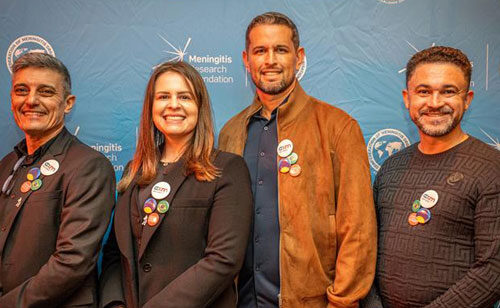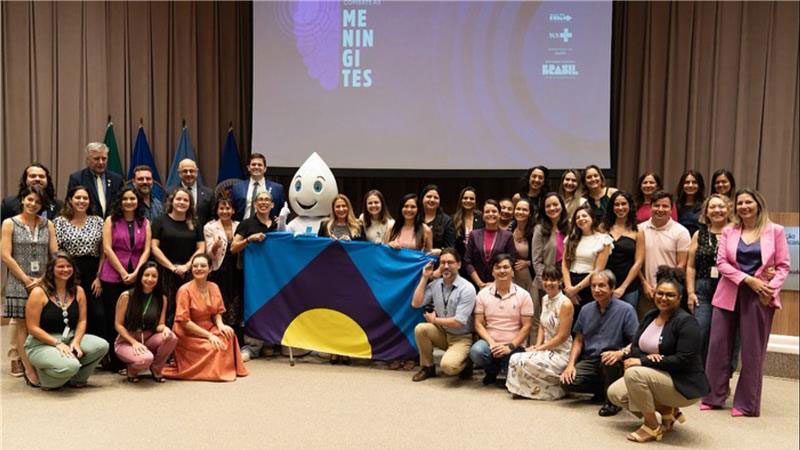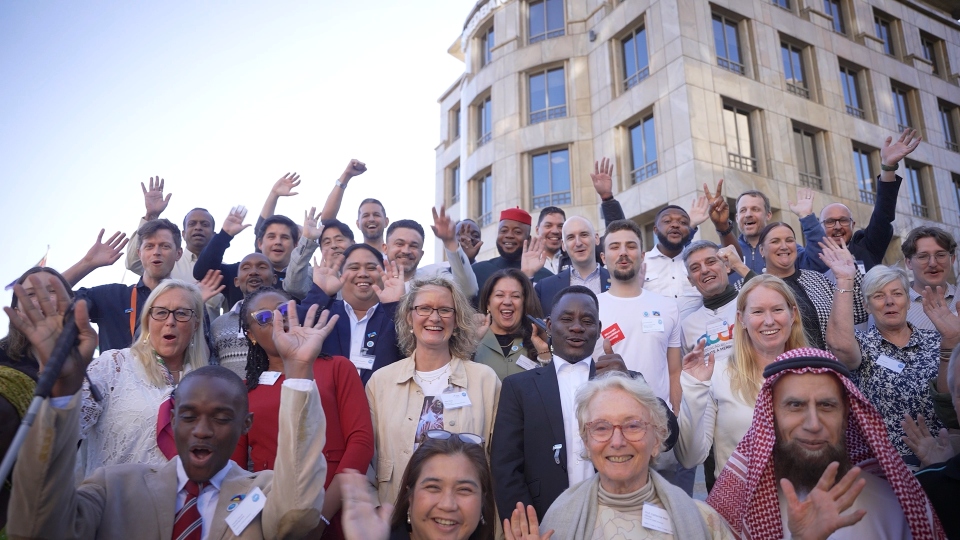
New research grants target the lifelong impacts of meningitis
The grants are open to researchers based in the UK, Ireland and low- and middle-income countries.

How our Race to 2030 champions have supported the development of Brazil’s national plan to defeat meningitis.
Associação Brasileira de Combate à Meningite in Brazil are one of our Race to 2030 champions. Antonio, Suelen and the team are committed to both defeating meningitis at home and driving forward global advocacy. In this blog post, we asked about their work to support the Brazilian government in creating a national plan for defeating meningitis.
Combating meningitis is everyone’s mission and because it is an emergency need worldwide, we must develop relevant actions in public policies.
Throughout the journey, we have been building a relationship with government authorities, in parliamentary committees and with representatives of the people in the Chamber of Deputies and the Federal Senate. This provides space for the presentation of bills and participation in specific committees, as representatives of organised civil society.
We began our work by identifying the national representatives in the health sector, specifically those who were working directly on the cause of immunisation and meningitis. We connected with them, introducing ourselves as advocates for the cause of combating meningitis. We shared our strong awareness-raising actions, delivery of real information and support to survivors.
Recognising our work in Brazil, they shared with us the intense and arduous work they were developing: the national plan to defeat meningitis by 2030 and invited us to take part in important discussion forums, in addition to actively contributing to the plan, through suggestions for social participation.
After a few meetings to monitor the situation of the disease in the country and plan actions together with the Ministry of Health, Suelen received an official invitation from national agencies to represent civil society at the launch of the plan, including an opportunity to speak.
In addition to feeling honoured, as the mother of a survivor, she saw a great opportunity to represent all Brazilian families, both those who have faced the disease and all others who, through her speech, could have the opportunity to avoid going through what she went through.
That was when Suelen was able to speak for all survivors and raise the flag for the cause of fighting meningitis. She felt that she was able to give them a voice, to show the whole world that they are not just numbers, but lives.
Since each country has its own specific challenges and demands, what works for one country will not always work for another. Therefore, by thoroughly analysing the reality of each country, we can outline more accurate and effective strategies.
Resources must be allocated in the most productive way possible, thus directing the entire budget and workforce to where they are truly needed.

Suelen (centre) with other representatives at the launch of the Brazilian national plan.
We stop being just numbers when we exercise our right to speak. We need to occupy the spaces where we can speak, bringing the reality that many are unaware of, raising awareness that the disease is real, it exists, it happens, but that together we can fight it.
We need to mobilise civil society together to defend the cause. For more voices to be heard and for the process of “listening to society” to happen, we need more people to be active in the cause of immunisation. It means being an advocate and training other advocates to join forces in the actions for this purpose.
We often have little time to convince, so be knowledgeable, present the reality and bring solution strategies.
We won’t always have the effective solution, but your participation opens new connections.
Be present at regional and national events.
Even if the ideas and political ideologies are often not exactly the same, the most important thing is to identify what unites us to the cause, and not what makes us diverge. In this way, efforts complement each other and talents come together. This is the power of unity.
A country free from meningitis, where society has access to information and through it, is aware of the means of prevention. A country where vaccination is the safest and most guaranteed means. Increase vaccination coverage, reduce death rates and serious after-effects, through awareness, education and access to vaccines for all.
Make vaccines available in the public health system and, through the culture of immunisation, encourage society to exercise its right, that is, by getting vaccinated.
Associação Brasileira de Combate à Meningite (ABCM) is a member of the Confederation of Meningitis Organisations (CoMO). ABCM was created to raise awareness about the disease and the importance of vaccination. It also provides support to empower people affected by meningitis.
Want to learn more about national plans to defeat meningitis? Join the Race to 2030.

The grants are open to researchers based in the UK, Ireland and low- and middle-income countries.

We celebrate a year of impactful advocacy and inspiring member‑led campaigns toward defeating meningitis worldwide.

Our view on the January 2026 changes and the implications for meningococcal vaccination policy.